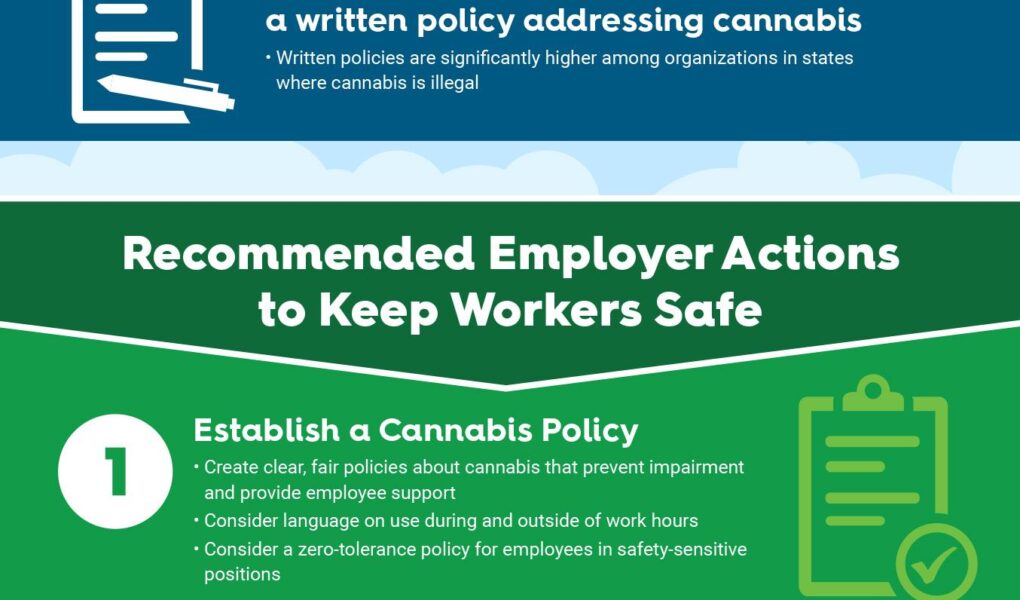Is THC Safe? A Potent Inquiry into the Cannabis Conundrum
As the cannabis plant sheds its clandestine past and enters the mainstream conversation, the psychoactive compound tetrahydrocannabinol, commonly known as THC, stands at the forefront of a passionate debate. Advocates hail its therapeutic benefits and cultural significance, while skeptics raise pressing questions about safety and long-term effects. In a world where more individuals are exploring cannabis for medical, recreational, or wellness purposes, understanding the implications of THC use becomes imperative. This article embarks on a journey through the complexities of THC, examining scientific insights, personal anecdotes, and societal narratives to uncover whether this potent compound is a friend or foe in the ever-evolving landscape of health and wellness. Join us as we sift through the smoke and mirrors to illuminate the truth behind THC safety.
Table of Contents
- Evaluating the Safety Profile of THC: What the Research Says
- Understanding the Potential Health Effects of THC on Body and Mind
- Navigating Legal and Regulatory Considerations Surrounding THC Use
- Best Practices for Responsible Consumption of THC Products
- Q&A
- The Way Forward
Evaluating the Safety Profile of THC: What the Research Says
As cannabis continues to gain acceptance in various medical and recreational contexts, understanding the safety profile of THC (tetrahydrocannabinol) becomes increasingly vital. Research indicates that while THC can offer therapeutic benefits—such as pain relief, appetite stimulation, and nausea reduction—its safety can vary significantly depending on dosage, frequency of use, and individual factors like age and underlying health conditions. Potential side effects of THC use may include:
- Impaired short-term memory
- Anxiety or paranoia
- Increased heart rate
- Dizziness and fatigue
Furthermore, long-term or heavy use of THC has been associated with cognitive impairments, particularly in adolescents whose brains are still developing. Some studies also point to a possible link between frequent THC use and increased risk of mental health issues. It’s important to approach THC use with caution, considering both personal and broader public health implications. Below is a simplified overview from recent studies addressing the safety aspects of THC:
| Study Focus | Findings |
|---|---|
| Short-term Effects | Generally mild adverse effects; may heighten anxiety in predisposed individuals. |
| Long-term Cognitive Effects | Mixed evidence; some correlation with memory impairment among heavy users. |
| Therapeutic Uses | Effective for chronic pain and nausea; further research required for long-term safety. |
Understanding the Potential Health Effects of THC on Body and Mind
THC, or tetrahydrocannabinol, is the primary psychoactive component found in cannabis, and it has a range of effects on both the body and mind. Users often report feelings of euphoria and relaxation, but the impact of THC is not uniform; it can vary significantly based on dosage, method of consumption, and individual tolerance. Some potential effects include:
- Euphoria: Many users experience heightened mood and a sense of well-being.
- Altered perception: THC can distort time and space perception.
- Increased appetite: Commonly referred to as “the munchies.”
- Short-term memory issues: Difficulty in recalling information while under influence.
- Anxiety or paranoia: Especially in higher doses or inexperienced users.
In terms of physical health, THC interacts with the body’s endocannabinoid system, which plays a role in various physiological processes. This interaction can promote relaxation of muscles and relieve pain, but it may also lead to some adverse effects such as:
- Increased heart rate: THC can raise heart rate, which may not be safe for everyone.
- Dizziness: Some users report feeling lightheaded.
- Respiratory issues: Associated with smoking cannabis.
| Effect | Positive | Negative |
|---|---|---|
| Elevated mood | ✔️ | |
| Altered perception | ✔️ | |
| Pain relief | ✔️ | |
| Anxiety | ✔️ |
Navigating Legal and Regulatory Considerations Surrounding THC Use
Understanding the landscape of THC use requires careful navigation through a patchwork of legal and regulatory frameworks. In some regions, THC is fully legalized, allowing for recreational and medical use, while in others, it remains strictly prohibited. This duality creates a complex situation for users who may find themselves at odds with local laws. Some of the critical factors to consider include:
- State versus Federal Legislation: In the United States, while certain states have legalized THC, federal law maintains a prohibition. This discrepancy can lead to confusion.
- Age Restrictions: Many jurisdictions impose age limits on THC use, typically requiring users to be 21 or older.
- Purchase Limits: Regulations often restrict the amount of THC that can be purchased at one time.
Furthermore, legal and regulatory considerations extend beyond just personal use. Businesses involved in the THC market must also navigate a maze of compliance obligations. This can include obtaining requisite licenses, adhering to labeling requirements, and implementing strict security protocols. Below is a brief overview of some business compliance requirements:
| Compliance Aspect | Details |
|---|---|
| Licensing | Specific licenses may be required based on the type of business (cultivation, dispensary, etc.). |
| Health and Safety Standards | Compliance with health codes to ensure safe product handling. |
| Advertising Restrictions | Certain regulations govern how THC products can be marketed, often limiting the channels and messaging. |
Best Practices for Responsible Consumption of THC Products
Engaging in the responsible consumption of THC products begins with awareness and education. Understanding the effects of THC, its legal status, and the various forms in which it is available can empower users to make informed decisions. Here are some key considerations for responsible use:
- Know Your Source: Always purchase from licensed dispensaries with transparent practices.
- Check Your Limits: Start with a low dose, especially if you’re new to THC products, to gauge your individual tolerance.
- Be Aware of Your Environment: Use THC in safe settings, ideally among trusted friends, to ensure a supportive atmosphere.
- Stay Informed: Read labels and packaging for potency details and any potential allergens.
It’s not just about how much you consume, but also about maintaining a healthy balance in your lifestyle. Consider integrating the following practices into your routine:
| Practice | Description |
|---|---|
| Set Clear Intentions | Define what you hope to achieve with THC use, whether it’s relaxation, creativity, or pain relief. |
| Avoid Mixing Substances | Refrain from using alcohol or other drugs simultaneously to prevent unpredictable effects. |
| Monitor Your Mood | Keep track of your emotional state before, during, and after consumption to identify any adverse effects. |
Q&A
Q&A: Is THC Safe?
Q1: What is THC, and how does it affect the body?
A1: THC, or tetrahydrocannabinol, is the primary psychoactive compound found in cannabis. It interacts with the endocannabinoid system in our bodies, binding to cannabinoid receptors and affecting various functions such as mood, memory, pain sensation, and appetite. Users often experience feelings of euphoria, altered perception, and relaxation. However, these effects can vary significantly from person to person.
Q2: Are there any medical benefits to using THC?
A2: Yes, THC has been shown to provide several medical benefits. It can alleviate chronic pain, reduce nausea and vomiting from chemotherapy, stimulate appetite in individuals with HIV/AIDS, and help with muscle spasms in conditions like multiple sclerosis. However, its use should always be under the guidance of a qualified healthcare provider.
Q3: What are the possible side effects of THC?
A3: While many enjoy the effects of THC, there are potential side effects to consider. These can range from dry mouth, red eyes, and increased heart rate to anxiety, paranoia, and memory impairment. In some individuals, especially first-time users or those with a predisposition to mental health disorders, THC may exacerbate anxiety or trigger psychotic episodes.
Q4: Is THC safe for long-term use?
A4: The safety of long-term THC use is still a topic of research. Some studies suggest that chronic use may lead to dependence, cognitive impairment, and respiratory issues if smoked. However, others argue that when used responsibly and in moderation, especially in medicinal forms, risks can be minimized. It’s crucial to approach long-term use with caution, monitoring for any negative effects.
Q5: Can THC be habit-forming?
A5: THC can indeed be habit-forming, especially for individuals who use it frequently and in high doses. Research indicates that a small percentage of THC users develop cannabis use disorder, characterized by cravings and withdrawal symptoms when not using. As with any substance, moderation is key.
Q6: How does THC compare to CBD in terms of safety?
A6: CBD (cannabidiol) is another compound found in cannabis that does not have the same psychoactive effects as THC. Generally, CBD is considered safe with fewer side effects and a lower risk of dependency. However, THC and CBD can complement each other, and their combined effects are often what users seek. Each person’s experience can vary, so it’s important to understand one’s own body and response.
Q7: What should individuals consider before using THC?
A7: Individuals should consider several factors before using THC, including their personal health history, potential interactions with medications, and the legal status of cannabis in their region. Those with a history of mental health disorders or respiratory issues should consult a healthcare professional beforehand. Understanding dosage, delivery methods, and individual tolerance levels is also essential for a safer experience.
Q8: What does the future hold for THC research?
A8: The future of THC research looks promising, with ongoing studies focusing on its therapeutic benefits, safety, and long-term effects. As legalization efforts expand and societal attitudes towards cannabis shift, more comprehensive research will likely emerge, helping to clarify its role in both medicine and recreation. Ultimately, informed decisions will be the cornerstone of safe THC use.
In conclusion: While THC has potential benefits, it is not without risks. Individuals should educate themselves and consult professionals to ensure a well-rounded understanding of THC’s safety.
The Way Forward
As we draw the curtains on our exploration of THC and its safety profile, it’s clear that the conversation surrounding this compound is as complex as the human experience itself. From medicinal uses to recreational enjoyment, THC invites a spectrum of perspectives grounded in science, anecdote, and personal choice. While research continues to uncover the multifaceted effects of THC, it is imperative for individuals to weigh the potential benefits against the possible risks, and to approach consumption with awareness and informed decision-making. Ultimately, the question of THC’s safety hinges not only on empirical data but also on societal context and personal responsibility. As our understanding evolves, so too does our ability to navigate these nuanced landscapes, empowering us all to make choices that align with our values and well-being. Thank you for joining us on this journey; may your path ahead be informed and enlightening.



